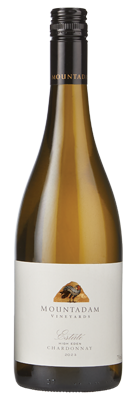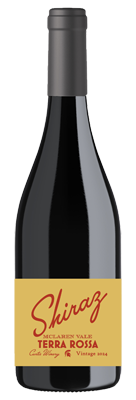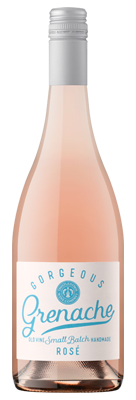Filter by
- Bestselling, Double Gold Reserve Shiraz from "the most brilliantly run winery in Australia" (Parker)$25.00 RRPfrom $17.99 when you mix 12+
- Mouthcoating Shiraz from a Jimmy-Watson Trophy-winning estate$25.00 RRPfrom $17.99 when you mix 12+
- New 2025 vintage of a bestselling blend with a Trophy, 10 Golds & many high pts in 9 vintages.$18.00 RRPfrom $11.99 when you mix 12+
- Bestselling Petite Sirah (Durif) with 24 Golds, 2 Trophies and more in 10 years.$19.00 RRPfrom $11.99 when you mix 12+
- Lavish 94pt Clare Valley Shiraz from a very well-respected winemaking team based in the Barossa.$75.00 RRPfrom $65.99 when you mix 12+
- A Gold-winning "corker of a porker" you must try from the famous Black Pig!$25.00 RRPfrom $13.99 when you mix 12+
- Gold-medal South Australian Shiraz favourite from John Quarisa.$20.00 RRPfrom $13.99 when you mix 12+
- Another outstanding high altitude release from Mountadam with 94pts and a special value star.$40.00 RRPfrom $25.99 when you mix 12+
- $22.00 RRPfrom $14.99 when you mix 12+
- $18.00 RRPfrom $12.99 when you mix 12+
- Save 60% on a very special, lavish ‘one-off’ Shiraz in honour of the Pig family’s 15th Anniversary.$50.00 RRPfrom $19.99 when you mix 12+
- SIX TROPHIES and multiple Golds for this mighty Duck – the boldest, richest and spiciest yet!$18.00 RRPfrom $12.99 when you mix 12+
- Don't wait for a party. Pop this tasty Aussie fizz to turn any occasion into a bit of a celebration.$24.00 RRP$12.49 when you mix 12+
- Ideal celebration vintage fizz from the Adelaide Hills – bright and fresh fruit and a slight blush.$32.00 RRPfrom $26.99 when you mix 12+
- An expressive fine quality 95pt Shiraz from the Curtis family, McLaren Vale winemakers since 1973.$65.00 RRPfrom $49.99 when you mix 12+
- Aptly 'enchanting', Gold-medal favourite South Australian Cabernet from John Quarisa.$20.00 RRPfrom $13.99 when you mix 12+
- Fans of The Black Pig should not miss this powerful gold-winning Reserve level 'posh' pig.$28.00 RRPfrom $16.99 when you mix 12+
- Our most reordered French red, a Grenache-rich red with velvety berry fruit and rich herby spice.$28.00 RRPfrom $17.99 when you mix 12+
- Luscious Trebbiano from old mate Sam Trimboli, has 4 Trophies & 14 Golds in its first six vintages.$19.00 RRPfrom $11.99 when you mix 12+
- Zippy, refreshing Pinot Grigio from prime SA vineyard sites, with a Gold-winning habit.$22.00 RRPfrom $14.99 when you mix 12+
- New vintage of a ripe Chardonnay favourite from the Mediterranean-like vineyards of McLaren Vale.$20.00 RRPfrom $15.99 when you mix 12+
- Thoroughly satisfying, Gold-winning, pear-scented favourite Pinot Grigio by John Quarisa.$18.00 RRPfrom $12.99 when you mix 12+
- Johnny Q's latest Shiraz is down to earth and full of character – plus – well, UMPF!$18.00 RRPfrom $12.99 when you mix 12+
- In name and nature... gorgeous Grenache pretty and satisfying in pink from Grenache masters!$26.00 RRPfrom $21.25 when you mix 12+
Wine FAQs
What is vegetarian wine?
Although wine is made from fermented grapes, it isn’t always vegetarian-friendly. Although grapes are the main ingredient in wine, animal-based products are often used during the winemaking process to clarify and stabilise the wine, before it is bottled. However, there are alternative products that can be used for this, allowing for the production of vegetarian-friendly wines.
Why is wine not vegetarian?
Wine isn’t always vegetarian, and that’s down to the ‘fining’ process. This clarifies wine to remove any impurities or suspended solids that can impact its clarity and stability. Winemakers typically use animal-derived products to do this, and that can make a wine not strictly a vegetarian drink.
The substances don’t remain in the wine – they are removed along with the particles they help to clear out. Depending on the type of fining agent use, the resulting wine may not be suitable for vegetarians.
Traditional fining agents can include:
Gelatin – derived from animal bones and connective tissues
Isinglass – made from fish bladders
Egg whites (Albumin) – used particularly in red wines
Casein – a protein derived from milk.
If either of the first two are used, the wine is not vegetarian.
If any of the above are used, the wine is not vegan.
What’s the difference between vegan and vegetarian wines?
Rather than traditional fining agents such as gelatin and isinglass, vegan wines are made using alternative agents.
These can include:
Activated charcoal
Silica gel (a form of silicon dioxide)
Pea protein
Bentonite (a type of clay with strong absorptive properties)
While a vegetarian diet involves eating plant-based foods and avoiding meat and fish products, some vegetarians eat eggs and milk. Wine can be included in a vegetarian diet as long as the fining agents used are also suitable for vegetarians.
As fining agents aren’t classified as ingredients and, therefore, are not listed on a wine’s label, you may wish to choose a wine labelled as vegan to be sure of its suitability.
How do you know if a wine is vegetarian?
Look for a wine labelled as vegetarian or bearing a vegetarian symbol or logo. Occasionally, wineries may even specify the fining agents they’ve used in their winemaking process online.
On our website, you can check the information section of the wine description to see if a wine is vegetarian.
Or you can simply browse the wines on this page.
Do vegetarian wines taste better?
How a wine tastes is influenced by many factors, principally the grape variety used, the soil and climate in which grapes are grown, winemaking techniques and how the wine is aged.
The same is true of vegetarian red wine and white wine.
Traditional animal-derived fining agents and their vegetarian alternatives are used to clarify and stabilise wine – not to impart flavour. They are used in small amounts and are removed from the wine along with the impurities they clarify.
Consequently, the choice of fining agent usually has a minimal impact on the taste of the wine.
Some winemakers choose not to fine or filter their wines at all. These wines might present different flavours compared to conventionally produced wines, but this is related to the overall winemaking philosophy and methods, not specifically whether the wine is vegetarian.
Is vegetarian wine popular in Australia?
Vegetarian wine is becoming more popular in Australia as consumers become more aware of the impact their choices have on their health and the environment. This has led to a rise in demand for vegetarian products, including wine. Some people prefer vegetarian wine due to ethical concerns about the use of animal-derived products in the winemaking process.
Australia’s thriving wine industry has recognised and supported this trend by producing more wines using vegetarian-friendly methods.
How can I pair vegetarian wine with food?
No vegetarian dish would be complete without a delicious vegetarian wine to pair with it.
Pairing vegetarian wines with food follows the same rules as traditional food and wine pairings. Your focus should be on matching the wine’s characteristics with the flavours and textures of the dish. For example, a crisp, zesty Sauvignon Blanc pairs wonderfully with a fresh, crunchy green salad or a tangy goat cheese tart.
A full-bodied Cabernet Sauvignon with robust tannins and dark fruit notes would work well with a rich, hearty dish like mushroom and lentil stew or vegetable lasagne. The wine provides a delicious balance to the earthiness of these dishes.
Finish off your feast with a glass of late-harvest Riesling paired with a slice of apple strudel – the bright acidity and delicate floral notes of a Riesling would beautifully balance the richness of the dessert. Alternatively, try an Aussie Sparkling wine such as The Black Pig Sparkling White or Howard Vineyard Sparkling Pinot Noir Chardonnay with a tropical fruit Pavlova. The effervescence and vibrant fruit flavours can cut through the sweetness of the meringue and fresh fruit.



























